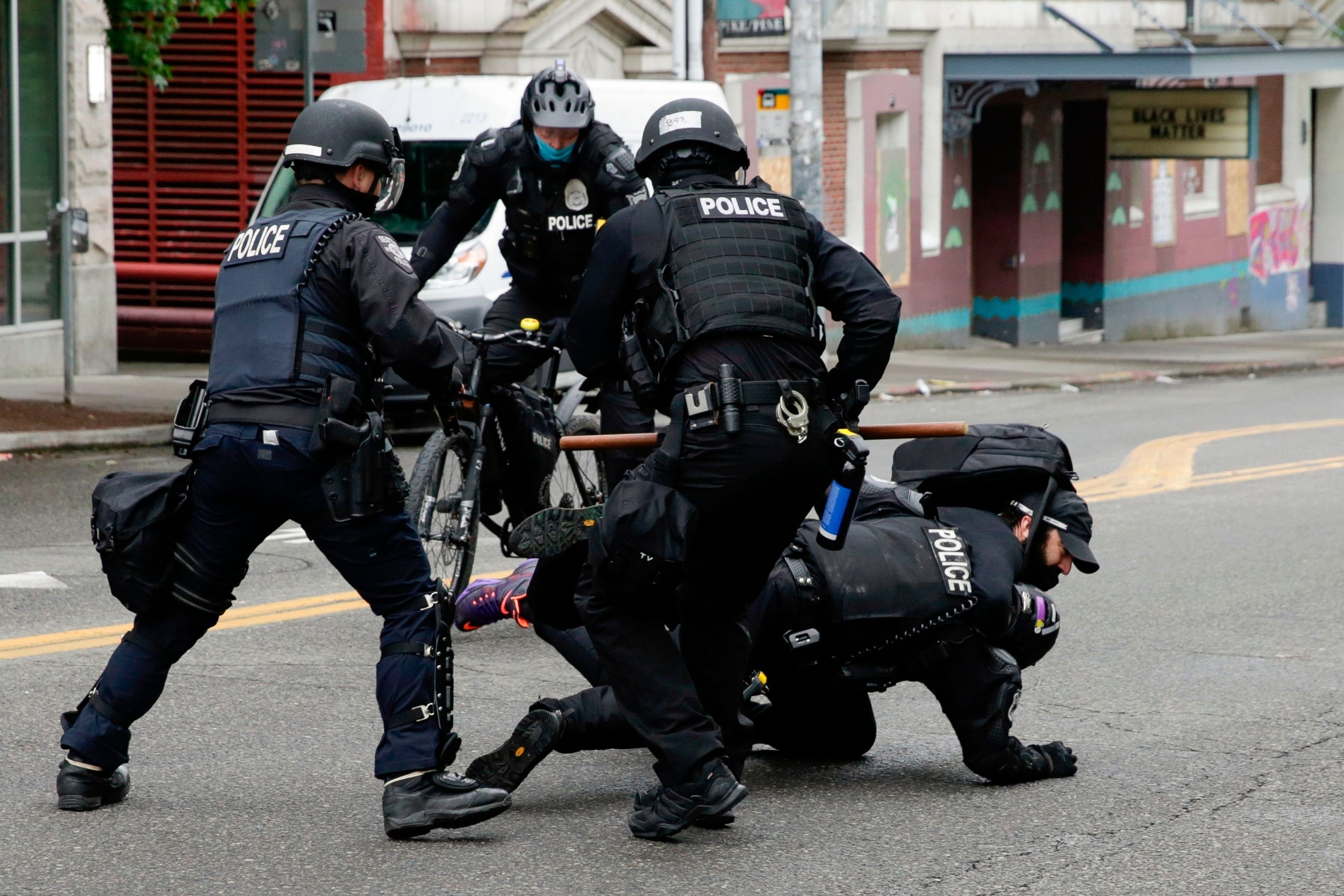Excessive force against reporters during the Black Lives Matter protests has become routine. We need to ask ourselves why
I wasn’t surprised to hear the story of Independent correspondent Andrew Buncombe

Your support helps us to tell the story
From reproductive rights to climate change to Big Tech, The Independent is on the ground when the story is developing. Whether it's investigating the financials of Elon Musk's pro-Trump PAC or producing our latest documentary, 'The A Word', which shines a light on the American women fighting for reproductive rights, we know how important it is to parse out the facts from the messaging.
At such a critical moment in US history, we need reporters on the ground. Your donation allows us to keep sending journalists to speak to both sides of the story.
The Independent is trusted by Americans across the entire political spectrum. And unlike many other quality news outlets, we choose not to lock Americans out of our reporting and analysis with paywalls. We believe quality journalism should be available to everyone, paid for by those who can afford it.
Your support makes all the difference.The July 9th article from Independent correspondent Andrew Buncombe detailing his own arrest and treatment in covering the protests against the police killings of Black people is a microcosm of both what we have witnessed in the policing of these protests nationally and the absurdity of protest-related arrests for minor infractions during the time of Covid-19.
Buncombe’s case was not a unique set of circumstances or just an unlucky set of coincidences during these protests. As Amnesty International has documented, police across the US have committed widespread and egregious human rights violations against people protesting the unlawful killings of Black people, and the people covering these protests have not been immune from that same violence or treatment.
Law enforcement across the country similarly targeted members of the media with excessive use of force through the use of chemical irritants, kinetic impact projectiles, and arrest and detention. In a horrific series of incidents, several members of the media were badly injured or blinded by the use of kinetic impact projectiles – rubber or foam bullets. Many of these incidents were documented live on television for everyone to see, such as the arrest of a reporter and his crew members in Minneapolis and the deliberate targeting of a reporting team with pepper balls in Louisville. There have also been at least 60 reported arrests of journalists as they covered these protests.
On top of violence inflicted on people involved in these demonstrations, cities and law enforcement officials compounded the problem by stringently enforcing low-level protest violations – such as violations for curfew. In a one-week span when New York City’s curfew was in effect, the NYPD arrested more than 2,500 people for their involvement in protest-related activities, with more than half for curfew infractions.
Churning additional people through our jails at the height of a nationwide health pandemic is a recipe for disaster and places people’s lives at risk, as prisons and jails have become hotspots for Covid-19 throughout the country. According to the Marshall Project, as of July 7, at least 57,019 people in prison had tested positive for the illness, a 9 percent increase from just the week prior. Local jails have often been hot spots within cities battling Covid-19, continuing to increase even when those cities’ numbers have decreased, such as at Rikers Island in New York City. There is just no way to socially distance or maintain safe hygiene in any of this country’s overcrowded jails.
In light of the health risks associated with Covid-19, law enforcement should avoid detaining people for low-level offenses related to protest-related activities wherever possible unless absolutely necessary, especially members of the press. If individuals are arrested, officers should not use restraints in an excessive manner or for prolonged periods of time during processing and anyone arrested should be provided with food and water, access to restrooms, means of sanitation and prevention like soap and water, medical attention if needed, and prompt access to counsel. Any and all allegations of human rights violations by police officials during these protests must be thoroughly investigated. Any person found responsible must be brought to account through criminal or disciplinary proceedings as appropriate, and victims provided full redress.
The media has an important role to play in protecting the right to freedom of peaceful assembly, but especially right now, when society is taking to the streets to protest the unlawful killings of Black people by police while simultaneously combating a highly contagious virus. Their presence and freedom to move amidst the demonstrations and document what is happening in our streets, oftentimes long into the night, has shone a light on how our police are committing these human rights violations. The media have a right to attend and report on these protests, and law enforcement officials have a responsibility not to prevent or obstruct their work. If not, human rights violations like the ones we have witnessed over the past two months will breed in the darkness.
Justin Mazzola is Deputy Director of Research for Amnesty International USA, where he covers a number of issues for the organization, including ones related to criminal justice, policing, and immigration enforcement and detention. He has also acted as a legal trial observer for the organization, most notably for the Chelsea Manning trial
Join our commenting forum
Join thought-provoking conversations, follow other Independent readers and see their replies
Comments